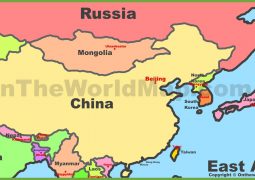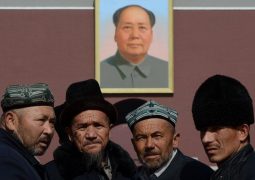Japan helps to strengthen defence of Philippines in the high seas

Japanese Prime Minister Abe met for the first time with Duterte during the ASEAN summit held in Laos. He laid bare Japan’s intent to further boost the search-and-rescue and fisheries protection capabilities of the Coast Guard through the provision of two 90-meter patrol vessels and 10 multi-role vessels.
Abe also promised to beef up the Philippine Navy’s capabilities for reconnaissance missions, disaster relief operations and transporting supplies by lending five TC-90 training aircraft to the navy. When Abe made a state visit in January, he reiterated Japan’s support for the Philippines’ capacity-building initiatives on maritime security. Hence, on 28 March 2017, Japan formally transferred the first reconnaissance planes to the PN.
These efforts are part of Japan’s strategic objective of solidifying the security partnership between the Philippines and Japan—both maritime and liberal democratic nations with shared common interest in the preservation of freedom of navigation and respect for the rule of law—amid growing regional uncertainty brought about by increasing Chinese assertiveness and worsening Philippine-US relations.
The arbitral tribunal ruling revisited
To recall, the Permanent Court of Arbitration (PCA) categorically ruled that upon ratification of the United Nations’ Convention on the Law of the Seas (UNCLOS), China’s historic rights to the marine resources in the South China Sea were extinguished. Also, the court affirmed that there is no historical evidence proving that China had fully exercised exclusive control over the waters and their resources surrounding the land features in the South China Sea. Furthermore, the tribunal asserted that the Chinese vessels’ presence in the high seas constitute an exercise of freedom of navigation and fishing rather than historic right. Overall, the PCA ruled in favor of the Philippines’ 14 out of 15 claims against China.
The three-month long stand-off between a lone Philippine Coast Guard vessel and Chinese civilian ships off Scarborough Shoal in 2012 was the single incident that brought Manila and Beijing very close to the brink of a shooting war.
Outgunned and outnumbered, the Philippines pulled out its lone vessel in mid-June 2012. This eventually gave the Chinese Maritime Surveillance (CMS) personnel the free hand to construct a chain barrier across the mouth of the shoal in order to block the Filipino fishermen access to it.
In addition, the CMS personnel escorted the Chinese fishing boats that operate deep into the Philippines’ exclusive economic zone to prevent them from getting arrested by Philippine authorities. This chain of events paved way to China establishing de facto control over the shoal.
Seeing the futility of thwarting China’s actions militarily, the Philippines resorted to legal means to resolve the brewing tension. The Aquino government filed a statement of claim against China in the PCA at The Hague.
Expectedly, China refused to participate in the proceedings, arguing that the only acceptable manner of resolving disputes on territorial and maritime rights is through bilateral talks with countries that are directly concerned.
Interestingly, Japan sent representatives as observers throughout the two-year proceedings. Under Prime Minister Shinzo Abe, Tokyo has been consistent in expressing its unequivocal support to the Philippines’ determination to resolve the issue on the basis of international law. This is reflective of Japan’s determination to uphold peaceful resolution of disputes through UNCLOS and prevent any other country from altering the status quo in the South China Sea by force.
Japan’s new approach to defense, foreign policy
The participation of Japan in the Philippines-China dispute should be understood in the context of Japan’s evolving domestic and external security environment and Abe’s adoption of a proactive approach in international affairs. Within Tokyo, Abe and his cohorts of political elite acknowledged that Japan’s minimalist security policy—with its strong emphasis on economics and limited involvement in external security affairs—was becoming passé in the face of China’s expedient military modernization and North Korea’s improving ballistic and nuclear missile capabilities.
Hence, when Abe returned to power in December 2012, he urged Japan to assume a more proactive role in upholding the liberal international order with an emphasis on the security and governance of the maritime domain. Accordingly, on Dec. 17, 2013, the Abe administration officially adopted a new national strategy that would concretize Abe’s aspirations and seal Japan’s role as the defender of the post-Second World II liberal order in East Asia.
In line with this, Japan enacted “multilayered security cooperation” with its treaty ally, the US, as well as other security partners in the region such as South Korea and Australia which share the common interest of keeping the sea-lanes of communication open. Today, such shared interests underpin Japan’s cooperation with the Philippines.
Renato Cruz De Castro, Ph.D. is a trustee and program convenor for foreign policy and regional security at the Stratbase Albert Del Rosario Institute (ADRi) and a professor at the De La Salle University.
- Previous Bollywood diva Kareena Kapoor sends fans into frenzy in Bangsar
- Next U.S. Shows Off ‘Attack Capabilities’ After North Korea Missile Test










